Welcome To MovieAnimeX ! “Man is the true monster.”
That’s the phrase echoing through every frame of Frankenstein (2025) — Guillermo del Toro’s long-awaited reimagining of Mary Shelley’s timeless story. Released theatrically in October 2025 and now streaming on Netflix, this film isn’t a jump-scare horror — it’s a haunting exploration of creation, guilt, and what it means to be human.
👉If you like this review and want to help us grow financially, then you can do it by purchasing products in the blog; they are affiliated links. It gives us commissions but no extra cost to you. The affiliated links are indicated by pointing emoji.
Table of Contents
Ratings
- MovieAnimeX:- 9/10
- IMDb:- 7.7/10
- Rotten Tomatoes Audience Score:- 95%
- Rotten Tomatoes Critics Score:- 85%
A Dream Project Decades in the Making
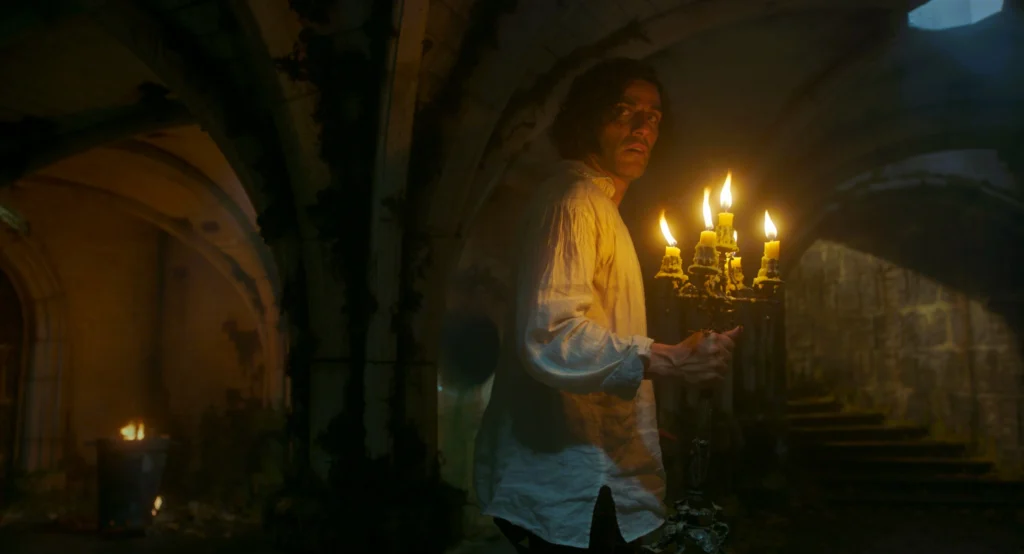
Del Toro has spent nearly 20 years developing his version of Frankenstein. Known for his love of monsters and emotional storytelling (Pan’s Labyrinth, The Shape of Water), he finally delivers a deeply personal take on Shelley’s masterpiece.
Unlike earlier Hollywood versions that turned Frankenstein’s creature into a symbol of terror, this adaptation dives into the psychological and emotional connection between creator and creation. The film feels less like a horror show and more like a tragic opera — a dark reflection on love, loneliness, and the arrogance of man.
From the opening moments, you can tell this isn’t your typical monster movie. Every shadow, every candle-lit corridor, every moment of silence tells a story.
The Trailer
Watch The Trailer Here:-
The Story: Science Meets Soul
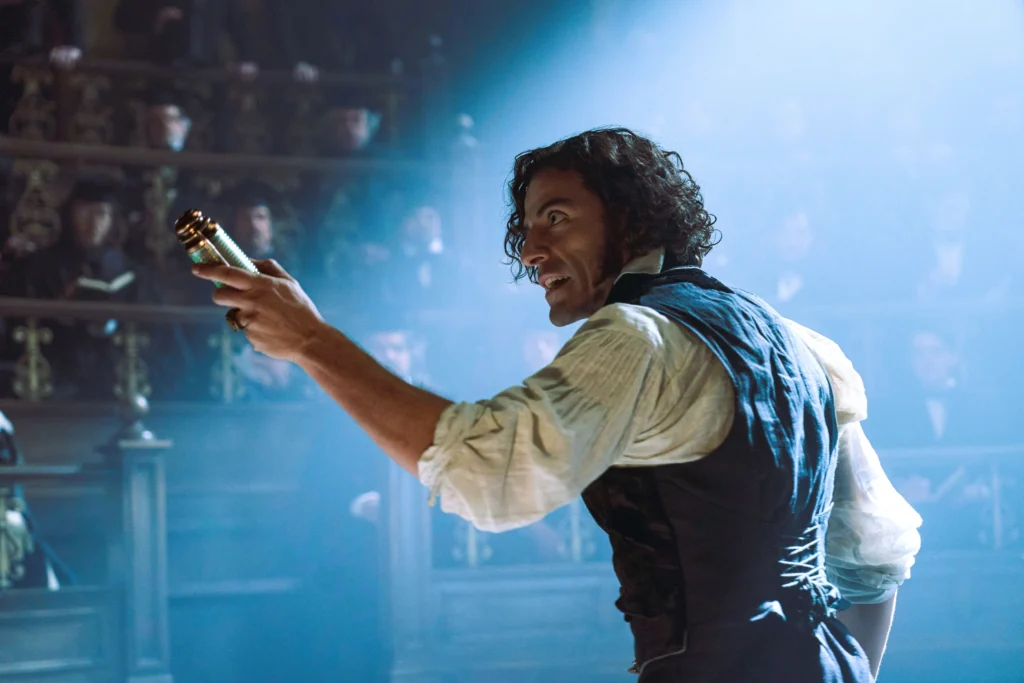
Without spoiling too much, Frankenstein (2025) follows Victor Frankenstein (Oscar Isaac), a brilliant yet tormented scientist obsessed with conquering death. His reckless pursuit of godlike power leads him to create The Creature (Jacob Elordi) — a being stitched together from corpses and given unnatural life.
But once the experiment succeeds, Victor recoils in horror at his creation. Abandoned and alone, The Creature begins to wander through a cruel world, desperate to understand why he was made — and why he is unloved.
What follows is a chilling yet heartbreaking chain of events — one that tests the limits of empathy, morality, and redemption.
Del Toro balances faithfulness to Mary Shelley’s original text with new emotional depth. The film doesn’t just ask whether Victor played god — it asks whether humanity itself is worth saving.
Jacob Elordi as The Creature: A Performance for the Ages
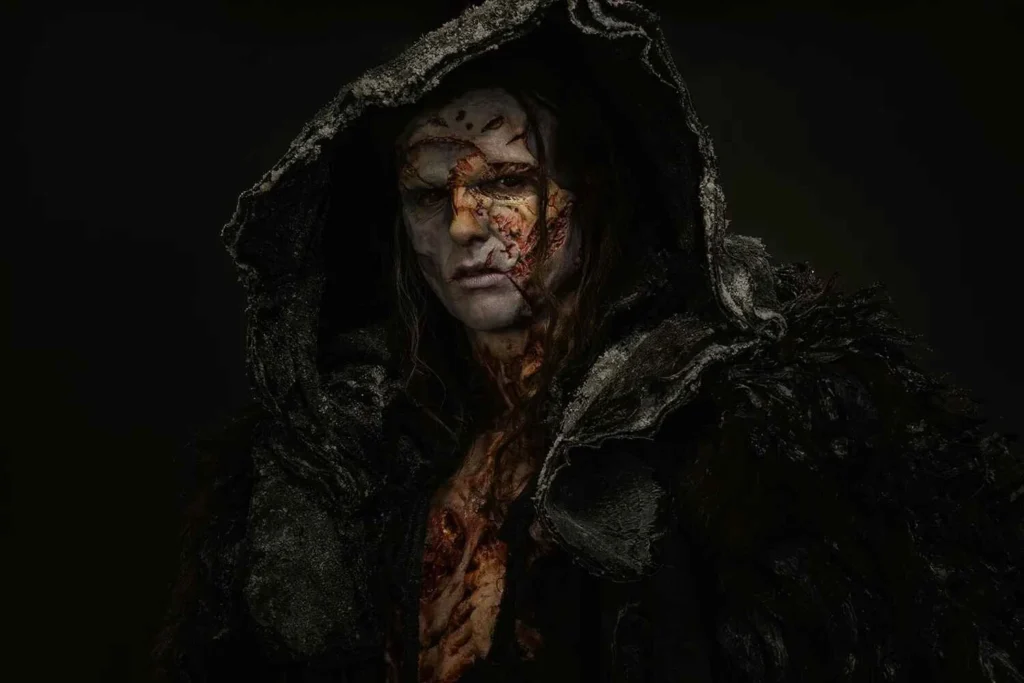
Jacob Elordi (Saltburn, Euphoria) delivers the most heartbreaking performance of his career. His version of The Creature is not just terrifying — he’s tragically human.
Every flicker in his eyes screams pain, confusion, and longing. When he speaks, his words are raw poetry — fragments of a soul trying to make sense of existence. Elordi’s portrayal makes you feel for the monster, not fear him.
He moves through the film like a wounded child in a nightmare. When he confronts his creator, it’s not vengeance — it’s the desperate cry of someone asking, “Why was I made if not to be loved?”
This emotional depth is what separates del Toro’s Frankenstein from the countless adaptations before it. The creature’s agony feels universal — a reflection of every soul searching for meaning in a cold world.
Oscar Isaac’s Victor Frankenstein: The God Who Regrets
Opposite Elordi, Oscar Isaac gives a powerhouse performance as Victor Frankenstein — a man consumed by ambition and guilt.
Isaac portrays him as both genius and coward — a visionary who creates life but refuses to take responsibility for it. His descent into madness is beautifully tragic. You can almost feel the weight of his decisions crushing him as he realizes the horror of what he’s unleashed.
Isaac and Elordi share electric chemistry — their rare scenes together burn with unspoken rage and sorrow.
When they finally face each other, it’s less a battle of good vs. evil and more a confrontation between father and son, creator and creation, human and monster — all blurred into one.
Mia Goth’s Emotional Core
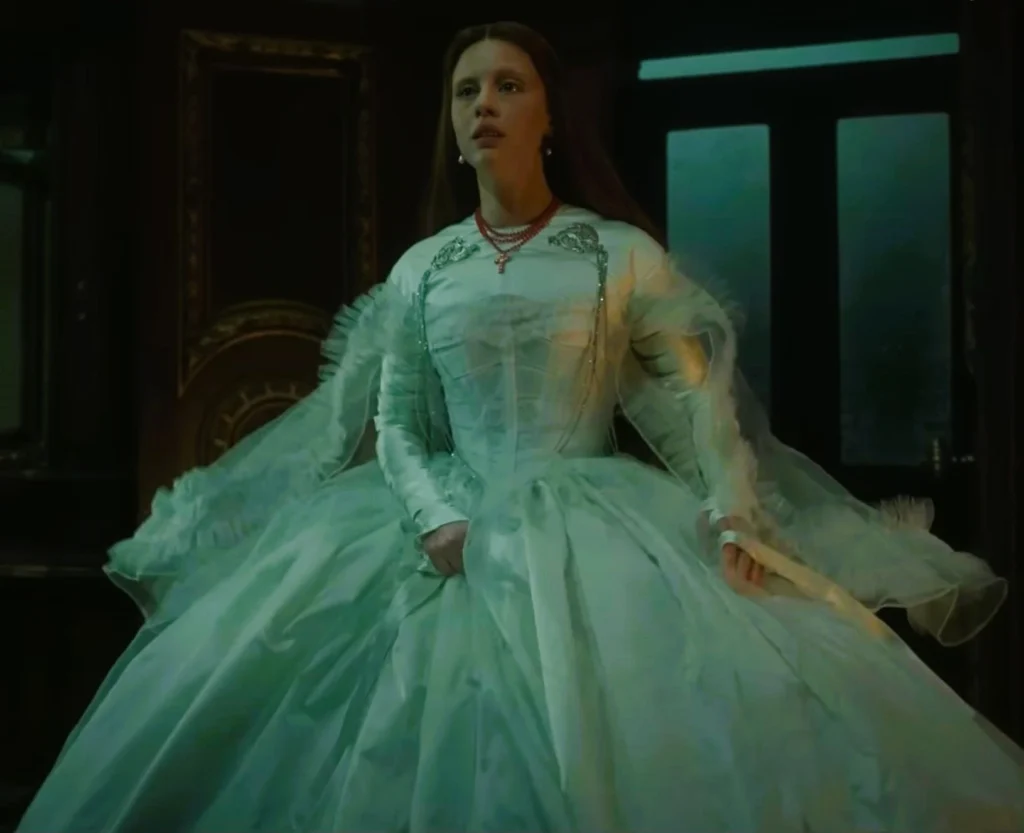
Mia Goth, as Elizabeth Frankenstein, serves as the fragile emotional center of the story. She’s not a passive victim but a grounding force who reminds both men what humanity truly means. Goth’s performance adds a layer of compassion amid the chaos — she becomes the mirror through which both Victor and The Creature see the cost of their obsessions.
Del Toro’s Direction: Gothic Art in Motion

Visually, Frankenstein (2025) is breathtaking. Every shot looks like a painting — rain-soaked streets, candlelight flickering on steel instruments, moonlight glinting off sorrowful eyes.
Del Toro’s signature craftsmanship shines through the set design and cinematography. The film’s aesthetic blends Gothic horror with romantic tragedy, making it feel timeless yet modern.
The makeup and costume design deserve awards on their own. The Creature’s design is grotesque yet graceful — unsettling but undeniably beautiful. It’s not CGI overkill; it’s practical art elevated by emotion.
The score, composed by Alexandre Desplat, enhances every emotional beat — swelling at moments of heartbreak, whispering through moments of silence.
The Good and The Bad
The Good
- Jacob Elordi’s career-defining performance – raw, emotional, unforgettable.
- Oscar Isaac’s powerful portrayal – guilt, madness, and empathy collide perfectly.
- Del Toro’s direction – visually stunning, poetic, and deeply human.
- Faithful to Mary Shelley’s novel while giving it a modern soul.
- Practical effects and cinematography make every frame a work of art.
- Emotional storytelling that redefines what a “monster movie” can be.
- Beautiful score by Alexandre Desplat that complements the tone perfectly.
The Bad
- Pacing is slow, especially in the middle act — this is a patient film, not a thrill ride.
- Limited horror elements – fans expecting jump scares or gore might be disappointed.
- Complex emotional tone – casual viewers may find it too philosophical.
- Heavy dialogue sections could feel stretched for some audiences.
Themes That Hit Deep
Beneath the stunning visuals lies the film’s true power: its themes.
Del Toro doesn’t treat the story as a simple monster tale — he turns it into a mirror reflecting humanity’s contradictions.
- Creation and Responsibility – Victor’s failure to love his creation becomes a metaphor for human neglect.
- Loneliness and Rejection – The Creature embodies what it feels like to be unwanted by society.
- The Nature of Humanity – The film constantly asks: who is the real monster?
- Empathy and Forgiveness – Both characters are victims of their own desires.
Del Toro reminds us that monsters are born from isolation, not evil.
Cinematography and Visual Storytelling
Cinematographer Dan Laustsen (who worked with del Toro on The Shape of Water and Crimson Peak) creates visuals that feel both painterly and terrifying.
The color palette shifts from cold blues and grays during Victor’s experiments to warm, fading golds when The Creature glimpses humanity — a subtle yet powerful storytelling choice.
Del Toro uses silence as a weapon — the moments when The Creature just listens to life around him are some of the film’s most powerful.
👉Apple AirPods Pro (2nd Gen) Immerse in audio with AirPods Pro 2: adaptive noise cancellation, transparency mode, and 6-hour playtime per charge. Comfortable fit for workouts or calls; 4.6 stars in amazon. Click On The Text For Link.
Frankenstein (2025) Ending Explained – No Spoilers
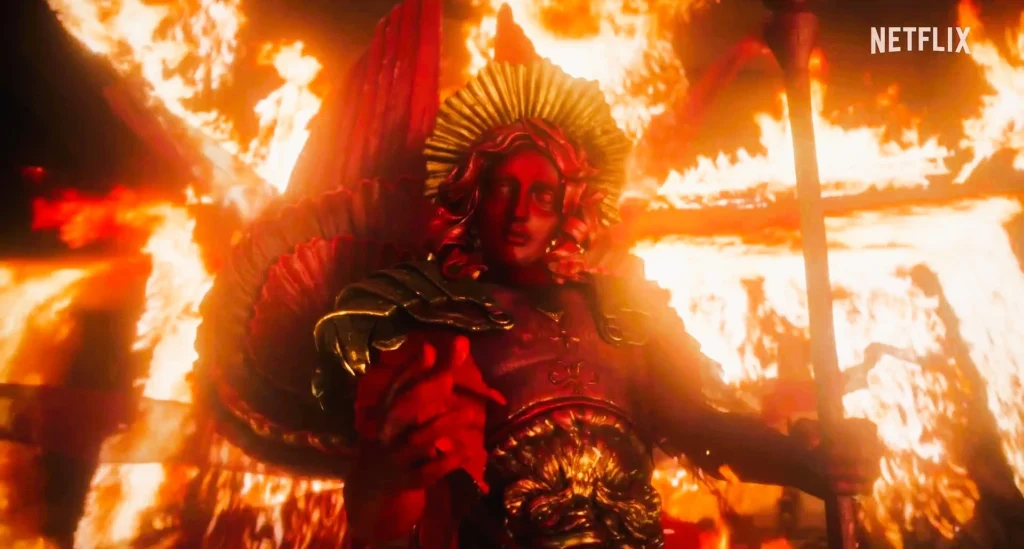
The ending stays true to the novel’s tragic tone but reinterprets it with modern emotion. Without revealing specifics, the film closes on a note that’s both devastating and peaceful — reminding us that even monsters crave meaning, and that forgiveness often comes too late.
If you watch closely, del Toro leaves visual metaphors everywhere — mirrors symbolizing duality, hands reaching for warmth but never touching it. It’s poetic, painful, and unforgettable.
Final Verdict
Score: 9/10
This is one of the best adaptations of Mary Shelley’s Frankenstein ever made — a film that respects its roots while reimagining its soul. It’s cinematic art layered with emotion, philosophy, and humanity. It’s not fast-paced or action-heavy — it’s patient, emotional, and devastatingly beautiful. Watch it with focus, and you’ll walk away changed.
Guillermo del Toro’s Frankenstein (2025) isn’t just a movie — it’s a meditation on life, love, and loneliness. It reminds us that monsters aren’t born; they’re made — often by the same hands that claim to seek perfection.
In a cinematic world flooded with reboots and remakes, this film proves that passion still matters. It’s bold, it’s human, and it’s unforgettable.
Frankenstein (2025) isn’t about the creature we fear — it’s about the creator we all become.